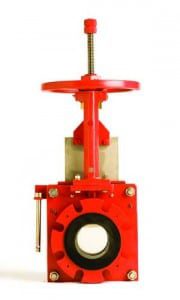Latest
-
News
Texas, Iowa Led States in Installed Wind Capacity in 2008
Wind power projects installed through the end of 2008 now generate 1.25% of the nation’s electricity, the American Wind Energy Association (AWEA) annual wind industry report shows. Texas again installed the most capacity, but Iowa surged into second place, beating California—the state where almost all wind power capacity in the U.S. was once installed.
-
News
FERC OKs Incentives for Midwest “Green†Transmission Superhighway
The Federal Energy Regulatory Commission (FERC) on Monday approved transmission infrastructure investment rate incentives for the Green Power Express, a proposed 3,000-mile transmission superhighway designed to deliver wind-powered renewable energy from the upper Midwest to Midwestern and Eastern states.
-
News
Supreme Court Backs Power Plants on Cooling Water Question
The U.S. Supreme Court sided with power companies in a landmark decision last week, ruling that the Environmental Protection Agency (EPA) is not prohibited from considering a cost-benefit analysis when regulating the design of cooling water intake structures. This ruling affects power plants use cooling water from the nation’s rivers, lakes, and oceans.
-
News
NYRI Pulls Plug on $2.1 Billion New York Transmission Project
A $2.1 billion project to build a 190-mile high-voltage direct current (HVDC) transmission line across New York State has been suspended because rules pertaining to transmission tariffs recently made by the regional grid operator had created an “unacceptable financial risk,” the New York Regional Interconnect Inc. (NYRI) said Friday.
-
News
Finland to Tax Nuclear, Hydropower to Cut “Windfall” Utility Profits
Finland’s government has proposed to enact a tax on nuclear and hydro power plants that were built before adoption of the 1997 Kyoto Protocol to cut “windfall profits” that have resulted from the EU’s carbon emission trading program.
-
News
Report: U.S. Power Plant Carbon Emissions Dipped 3.1% in 2008
Carbon dioxide emissions from power plants in the U.S. dropped 3.1% in 2008—a departure from the steadily increasing trend in preceding years, according to a new document from Environment Integrity Project (EIP), a nonpartisan and nonprofit organization.
-
News
Maryland Senate Approves Reregulation Bill as Session Deadline Looms
The Maryland Senate last week approved a bill that reverses a failed 1999 energy deregulation policy and gives state regulators the authority to order utilities to build new power plants in the state. The future of the bill is unclear, however—the state’s annual 90-day legislative session is scheduled to end on April 13.
-
News
First U.S. Large-Scale CO2 Storage Project Advances
Drilling nears completion for the first large-scale carbon dioxide (CO2) injection well in the U.S. for CO2 sequestration, the Department of Energy (DOE) reported Tuesday. This project will be used to demonstrate that CO2 emitted from industrial sources—such as coal-fired power plants—can be stored in deep geological formations to mitigate the release of large quantities of greenhouse gas emissions to the atmosphere.
-
News
Knife Gate Valve for Heavy Slurry Applications
Red Valve Company Inc. launched Series DX Slurry Knife Gate Valve, a durable and user-friendly gate valve that has been designed especially for heavy slurry applications in the power and mining industries. When the valve opens, the reinforced elastomer sleeves seal against each other and provide a 100% full port opening, minimizing turbulence, which in […]
-
Commentary
Transforming the U.S. Grid
Al Gore, in his recent New York Times op-ed titled “The Climate for Change,” calls for a “$400 billion investment over ten years to construct a national smart grid to distribute renewable energy.” Echelon supports these proposed investments. We also believe the answer is not just in constructing something new but in transforming the existing […]

